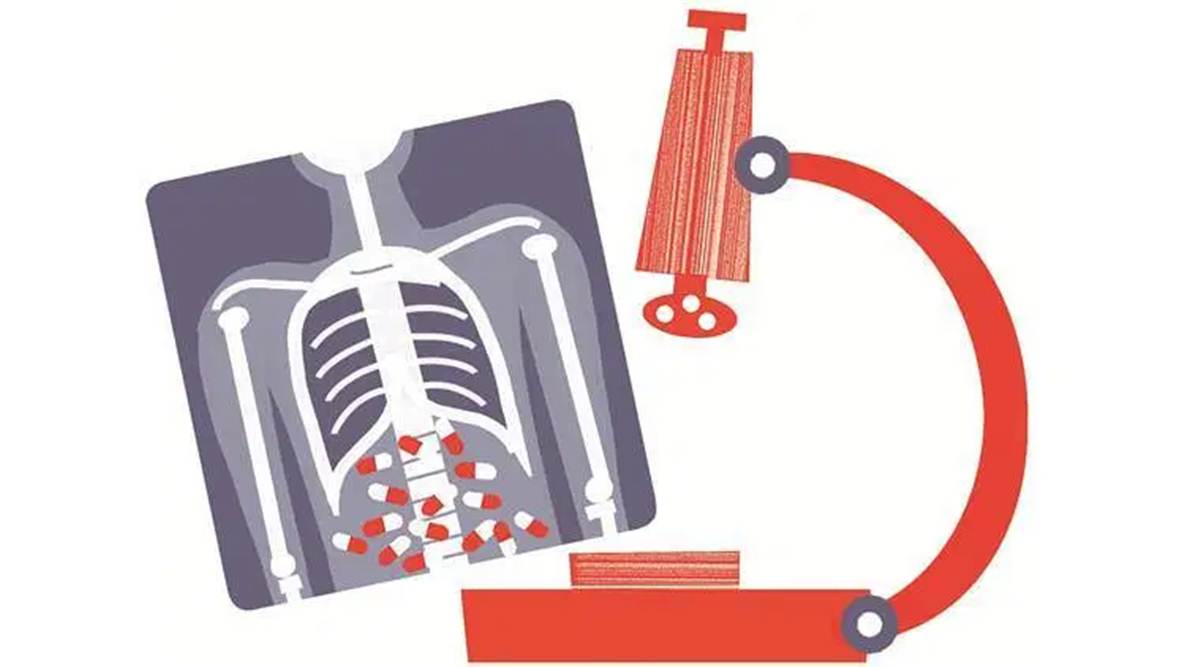March 17, 2022 3:03:23 am
 While policy mechanisms and political will exist, it’s a question of further refining our implementation strategies on the ground, as a collective. To this end, there are a few considerations.
While policy mechanisms and political will exist, it’s a question of further refining our implementation strategies on the ground, as a collective. To this end, there are a few considerations. Written by Heena Gavit
As India steadily steers its way through the pandemic to safer shores, we must foreground a disease which has been impacting our country for years, and disproportionately affecting women – tuberculosis.
Approximately 1.5 million people died from TB in 2020. In India, the TB case fatality ratio increased from 17 per cent in 2019 to 20 per cent in 2020. According to a joint report (2010-13) of the Registrar General of India and the Centre for Global Health Research, TB was the fifth-leading cause of death among women in the country, accounting for nearly 5 per cent of fatalities in women aged 30–69. While both men and women suffer the consequences of this debilitating disease, women patients pay a much steeper socio-economic price. From social ostracisation and lack of family support to the negative impact on marital prospects, women absorb the repercussions of TB beyond the clinical metrics. Stigma also acts as a strong deterrent when it comes to health-seeking behaviour. Fewer women, therefore, get included in the available cascade of care for TB.
There needs to be a multi-pronged approach to removing these barriers and bring equitable access to TB care. The government must be commended for being prescient: In 2019, the Health Ministry-Central TB Division developed a national framework for a gender-responsive approach to TB in India. The document takes cognisance of the challenges faced by women in accessing treatment and offers actionable solutions. Conversations on this issue need to be further elevated at a national level. In December 2021, a parliamentary conference on ‘Women Winning Against TB’ was organised by the Ministry of Women and Child Development where gender-responsive policy interventions were discussed. The Vice-President of India urged states to take proactive steps such as ensuring nutritional support to women and children and the doorstep delivery of TB services, especially for women from socio-economically weaker backgrounds.
While policy mechanisms and political will exist, it’s a question of further refining our implementation strategies on the ground, as a collective. To this end, there are a few considerations. One, as elected representatives, we need to come together more to highlight the issue at all relevant forums and spaces. I, along with many of my respected colleagues, carry out reviews of the TB programme in our respective districts and communities. I hope these meetings see increased participation of women leaders from all walks of life in the community going forward.
Two, we need to strengthen counselling networks for women patients and their families. Irrespective of where the patient seeks care – public or private sector – build the capacity of healthcare workers to educate the patient’s family about the importance of providing her a supportive environment during the course of her treatment. Three, ensure that the nutritional needs of women are being met. Deep-seated patriarchal notions warp the place of a woman in the family: Women are often the last ones to eat, preferring to feed elders, husbands, and children first. Undernutrition is a serious risk factor for TB and research indicates such risks are higher for women. It is commendable that the government, through Nikshay Poshan Yojana, has effectively provided a monthly benefit of Rs 500 to enable a nutritious diet for TB patients in the last few years. For the 2020 cohort, the total amount paid under NPY via DBT has been over Rs 200 crore. Additionally, we can look to further strengthen inter-departmental coordination, wherein the Public Distribution System can explore appropriate linkages with relevant departments of the MoHFW and even include a protein-rich diet for TB patients. This will ensure that patients, especially women, have access to a balanced diet.
Four, at a community level, we must amplify accurate TB messaging and showcase how gender plays a role in determining the course of action on the ground.
The world celebrates Women’s Day in March and spotlights women’s issues in society. However, it is time revisit notions of what constitutes a “women’s issue” and confront such gender constructs. Especially in the context of public health, challenges faced by women aren’t challenges that only women have the obligation to resolve. These are universal problems that must transcend gender binaries. Only when equitable solutions are offered to vulnerable sections of society will we be able to realise the dream of TB-Mukt Bharat.
The writer is BJP national spokesperson, MP from Nandurbar, Maharashtra and member, Global Coalition Against TB
- The Indian Express website has been rated GREEN for its credibility and trustworthiness by Newsguard, a global service that rates news sources for their journalistic standards.

